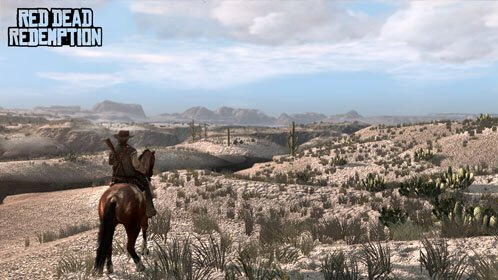This post has not been edited by the GamesBeat staff. Opinions by GamesBeat community writers do not necessarily reflect those of the staff.

Kotaku’s Stephen Totilo recently posted an article claiming that video-game music is not as important as many people believe it to be. For those lacking the time or interest to read his entire argument, here’s an abridged version:
Totilo used to be a staunch supporter of game music. Whenever he saw someone on the train playing a portable without sound, it appalled him, and he felt they were missing out on a crucial part of the experience.
But on a long gallop through Red Dead Redemption, Totilo turned down the volume and listened to some podcasts. Since then, he has found music to be a nonessential piece of the gaming puzzle.
To be fair, I agree with a lot of what Totilo has to say. Instead of dismantling his article, I’d rather tweak some of his points. First of all, I'd like to explain why some people turn off the music in portable titles.
I play the majority of my portable games with the volume turned down for a variety of reasons. Chief among them is that when I’m playing these games, I've usually got a world going on around me that I need to be aware of. Whether I'm holding a conversation between turns of an RPG or listening for the announcement that my flight is boarding, I can’t allow myself to be lost completely in a game like when I’m playing a console title.
Couple that with the disappointing speakers featured in most handheld systems, and I’m willing to give a pass to anyone who likes a little quiet while they adventure in Dragon Quest or solve puzzles in Super Scribblenauts.

Low quality music and tinny speakers? I'm not really missing anything anyway.
I'd also like to comment on Totilo’s reasons for turning down Red Dead Redemption when he did. Totilo's article makes it pretty clear that he had played for a decent amount of time before trying this new, quieter method. He’d probably already gotten a feel for the ambient Wild West soundtrack Red Dead Redemption offers.
On a long trip across the countryside — which he could’ve skipped if he'd wanted to — he may not have been interested in giving the game his full attention. He wasn’t in the middle of a mission, wacthing out for important dialogue, or seeing anything particularly new on his horse ride. Why not listen to a podcast or two?
I’m guilty of the same thing: When I'm messing around in Need For Speed: Hot Pursuit or chasing down flags in Assassin’s Creed: Brotherhood, I'll put on an episode of the Giant Bombcast and tune out a little. But what I think Totilo fails to realize is that moments like these don't demand the player's undivided attention.
But take Grand Theft Auto: Vice City as an example: Do you really think you'd be getting the best experience without the rocking ‘80s soundtrack booming through your Sabre Turbo’s stereo? Can you imagine playing a game of Left 4 Dead without its sound? It’d be nearly impossible because Valve injects gameplay cues into the music. You'd have no idea when a Tank was arriving. Would Mario be the same without Koji Kondo’s memorable themes? How about Sonic without Masato Nakamura?
Totilo seems to believe there are two types of jobs in a development studio: those that are essential to how a game looks and plays, and those that aren't.

No graphics, no problem.
But haven’t top-tier flash games — like the excellent One Chance — and classic text adventures shown us that graphics can be as unimportant, too?
I feel like Totilo is making too much of this. Music is absolutely essential to fully experiencing what a game has to offer, but when you’re poking around and exploring a game, it's OK to turn down the volume and listen to whatever you want.
What do you think? Are you disrespecting the developer when you’re not hearing the game the way they intended? Are in-game music and sound completely unnecessary? Or do games feature specific times when it's acceptable to listen to those extra Mobcasts?
